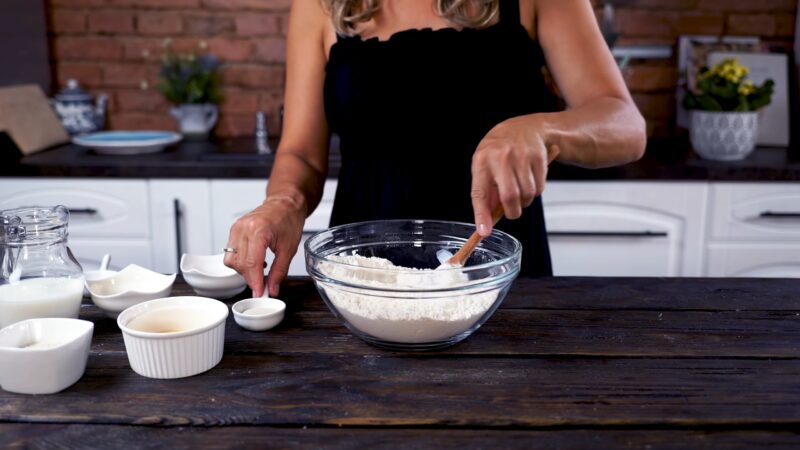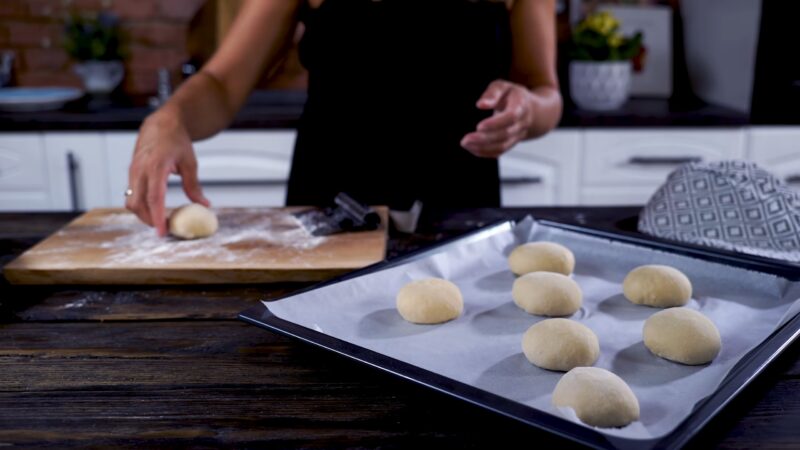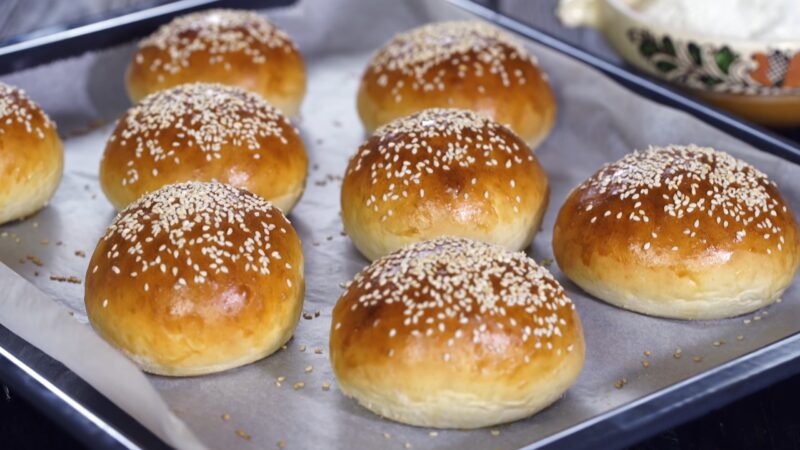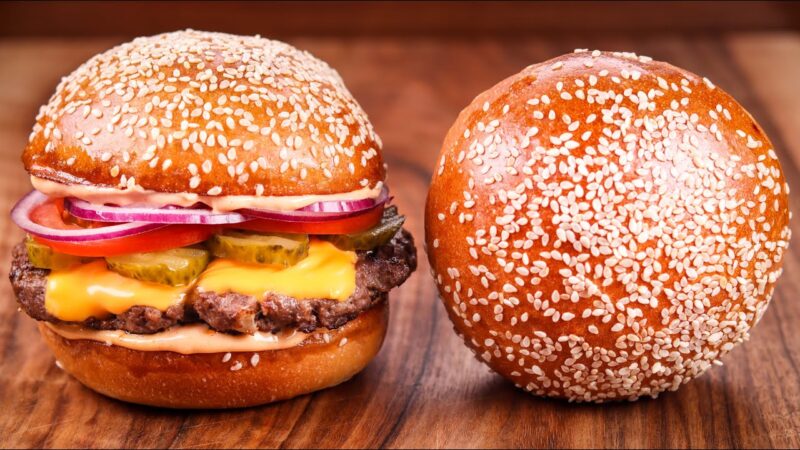Elevating the humble burger to a gourmet experience often starts with something seemingly simple: the bun. Homemade burger buns bring a freshness and softness that store-bought versions often lack, and creating them in your own kitchen allows for control over the ingredients, ensuring a healthier option.
Understanding how homemade buns can transform a meal is the first step towards culinary mastery of the burger.
Key Takeaways
- Homemade burger buns enhance the overall quality of burgers with improved freshness and texture.
- A precise recipe is essential for creating the ideal softness and flavor in homemade buns.
- Nutritional content is transparent and customizable when baking buns at home.
Ingredients

- Dry Components:
- 500g all-purpose flour
- 10g salt
- 50g sugar
- 7g instant yeast
- Wet Components:
- 300ml warm milk
- 1 large egg
- 50g unsalted butter, melted
- Topping (Optional):
- Sesame seeds or poppy seeds
Preparation Steps
- Mix Dry Ingredients: In a large bowl, combine flour, salt, sugar, and yeast.
- Combine Wet Ingredients: Whisk together warm milk, the egg, and melted butter.
- Form Dough: Gradually add the wet ingredients to the dry until a dough forms.
Baking Instructions

- Knead Dough: On a lightly floured surface, knead the dough for approximately 10 minutes until smooth.
- First Rise: Place the dough in a greased bowl, cover with a damp cloth, and let it rise for 1-2 hours, or until doubled in size.
- Shape Buns: Divide the dough into 12 equal pieces, shape into balls, and place on a baking sheet.
- Second Rise: Cover shaped buns with a cloth and allow to rise for another 45-60 minutes.
- Preheat Oven: Set your oven to 375°F (190°C).
- Bake: Brush buns with an egg wash, sprinkle with toppings if desired, and bake for 15-18 minutes or until golden brown.
Serving Suggestions
Serve these buns fresh from the oven with your favorite burger patties. They’re also an excellent choice for sandwiches or dinner rolls. Keep any leftovers in an airtight container at room temperature for up to 2 days, or freeze for longer storage.
Nutritional Information

Homemade burger buns are a source of carbohydrates, essential for energy, and protein for muscle repair. They also contain small amounts of dietary fiber, which aids in digestion.
Per Bun (Average Size):
- Calories: 260 kcal
- Protein: 9g
- Total Fat: 4.5g
- Saturated Fat: 1.2g
- Trans Fat: 0g
- Total Carbohydrates: 43g
- Dietary Fiber: 2g
- Sugars: 5g
- Sodium: 330mg
The buns provide essential B vitamins like niacin and thiamine, crucial for energy metabolism and brain function.
Minerals:
- Calcium: 79mg
- Iron: 3mg
It’s important to note that variations in ingredients and portion sizes will affect the final nutritional values. Homemade versions often allow for the reduction of added sugars and the option to enrich with whole grains.
For those monitoring their intake, a single homemade bun constitutes a reasonable part of a balanced diet. The homemade process can omit preservatives, ensuring a fresher, potentially healthier option compared to many store-bought versions.
Individuals with dietary restrictions can adjust recipes to align with their nutritional needs, such as using alternative flours to reduce gluten content or incorporating seeds and nuts to increase protein and healthy fats.
Frequently Asked Questions
What are the caloric and macronutrient contents of a homemade burger bun?
A single homemade burger bun typically contains approximately 200 to 250 calories. The macronutrients are generally around 8-10 grams of protein, 2-5 grams of fat, and 40-50 grams of carbohydrates, depending on the specific recipe used.
How can I create a healthier burger bun through my recipe choices?
To make a healthier bun, one may opt for whole grain flour instead of white flour, which increases the fiber content. Additionally, using natural sweeteners like honey and fats such as olive oil or avocados can improve the nutritional profile.
Can you provide a breakdown of the fiber and sugar content in a single homemade burger bun?
The fiber content in a homemade bun is typically between 2 to 4 grams, depending on the type of flour used. A bun made with refined white flour has less fiber than one made with whole wheat. Sugar content can range from a minimal amount in a plain bun to several grams if sweeteners are added.
Which ingredients can I substitute for a more nutritional homemade bun without compromising texture?
To increase the nutritional value without sacrificing texture, substitute a portion of the white flour with whole-wheat flour. Ground flaxseed or wheat germ can also be added. In some recipes, applesauce or mashed bananas may replace part of the fat for a moister bun.
Conclusion
Crafting homemade burger buns is a simple yet impactful way to elevate the classic burger into a gourmet experience. This endeavor not only enhances the taste and texture of your meals but also empowers you to control the ingredients, resulting in a healthier option. By creating your own buns, you’re stepping into a world of culinary creativity, where you can tweak recipes to suit your dietary preferences and nutritional goals.
